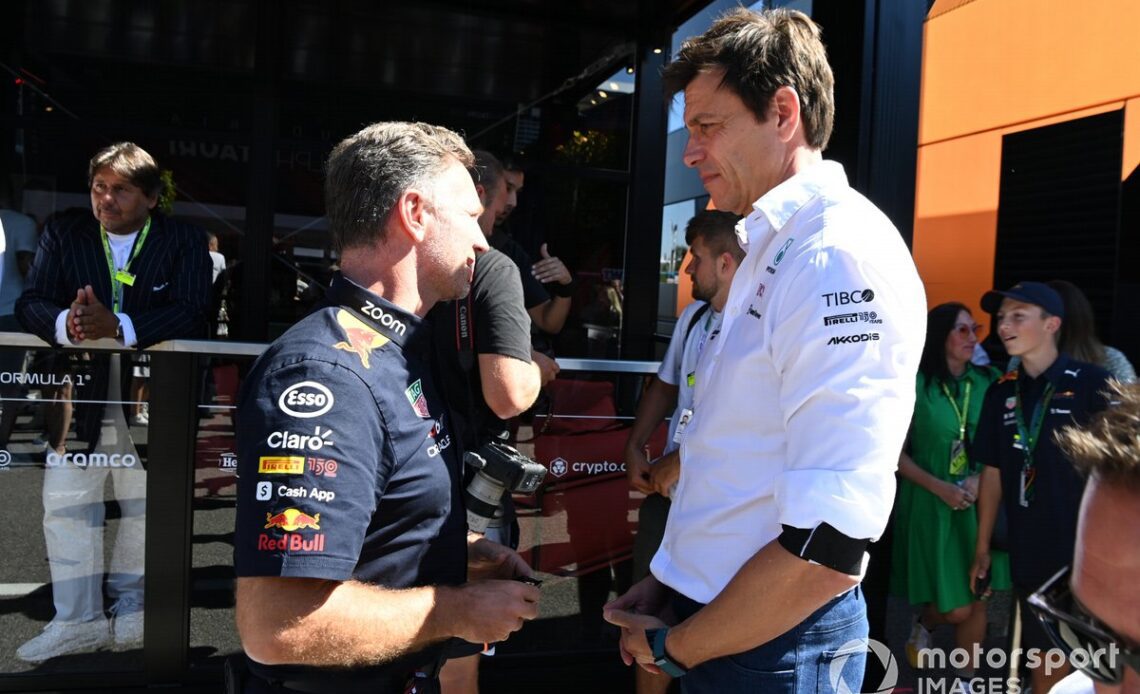The issue of grid drops for engine changes in F1 always rears it heads around the time of the Belgian and Italian Grands Prix, as teams make use of the good overtaking opportunities thrown up at the venues to go for fresh power units.
At last weekend’s race at Monza, there were nine drivers who took a penalty for various reasons – including power unit component changes, extra gearboxes or too many reprimands.
But the issue prompted a fair deal of controversy when fans and teams were left in the dark for nearly four hours after qualifying on Saturday to be totally sure of how the FIA would implement the penalties and make up the grid.
The situation also prompted renewed calls for a complete rethink about whether or not F1 needs a better system than simple grid drops for engine engines.
But Wolff, who had Lewis Hamilton start from 19th on the grid after he had to take a fresh power unit because of damage he picked up to a new engine in Belgium, sees no better way of dealing with the situation.
“We must remind ourselves why we have that,” he said about the engine penalty system. “On the chassis side, we are cost capped, and we weren’t before. On the engine side, we are not cost capped yet.
“If there were no grid penalties, we would have qualifying engines. And not five of them, but 20! The big teams and the OEMs would spend what they want in order to have an advantage.
“So that’s why there needs to be a certain factor that limits that and avoids them. So this is where it’s coming from now. But has it gotten too complicated? For sure.”
Photo by: Mark Sutton / Motorsport Images
While there have been suggestions that a way to preserve the current grid would be to simply dock constructors’ championship points for engine changes, Wolff is sceptical about that working.
For he reckons that if teams started losing points, then that would leave the door open for them to sacrifice the constructors’ championship entirely to go for more powerful engines at every race to help their driver win the title.
“One negative could be that the drivers’ championship is the one that counts, and you’re just throwing engines on the car, taking plenty of constructor deductions, but winning the championship with a driver because he has a new power unit every race,” he said.
Wolff admitted, however, that the excessive number of changes that teams have been forced to make this year is enough for there to be some debate about whether…
Click Here to Read the Full Original Article at Motorsport.com – Formula 1 – Stories…

